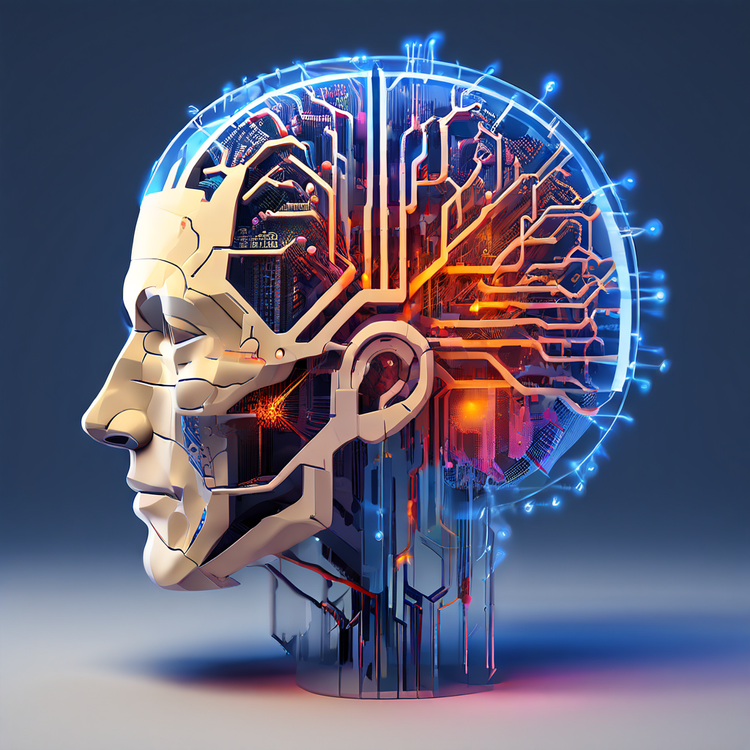What I see as the top health threat. How I try to beat it.

Perhaps most people believe cardiovascular disease and cancer are the primary health threats. Statistically, both of these do seem to be principal threats. They're reportedly the two leading causes of death worldwide. But I think there's a more critical threat – for those making a determined effort to be as healthy as possible.
And guess what. This threat is not a disease.
What is it?
The top threat, in my view, is the array of dietary and health advice we face.
Because firstly, such advice has become overwhelming, spreading across social media, blogs, articles, and science journals — like swarms of locusts.
And secondly, the advice is strikingly inconsistent.
The inconsistency is bananas. 🍌
Even the advice available from "experts" — scientists, doctors, and dietitians — is wildly inconsistent, shifting, and often contradictory.
It's almost like they're not on the same planet.
You've probably noticed this, too. There are disagreements among "experts" on many dietary and nutritional issues — from apples to zucchinis.
Should we eat fruits and vegetables — or maybe none?
You might think experts could agree on this. But they don't.
This doctor has suggested we don't need fruits and vegetables for antioxidants:
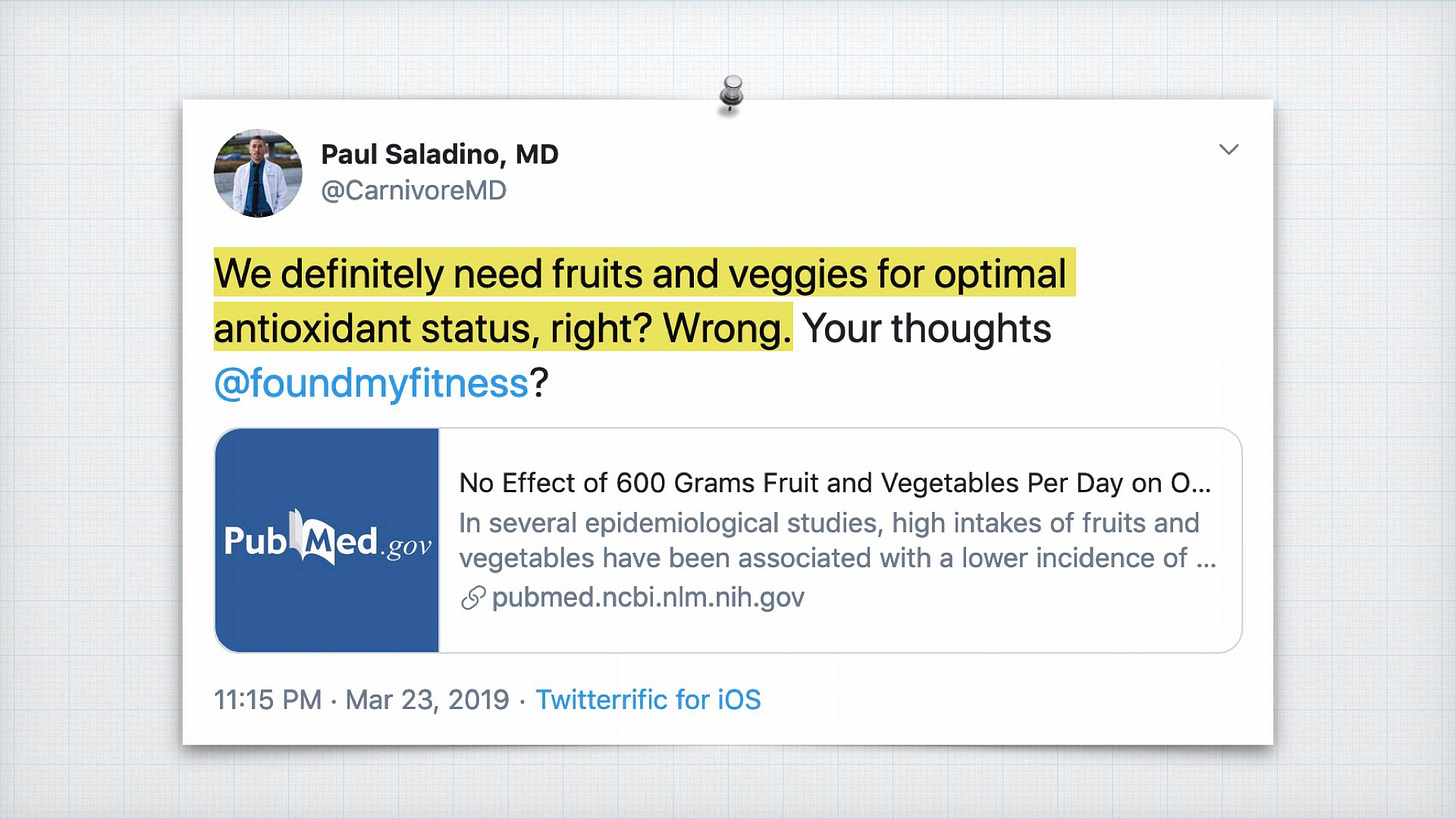
And this Harvard professor has indicated that fruits and vegetables can help protect us against aging and diseases:
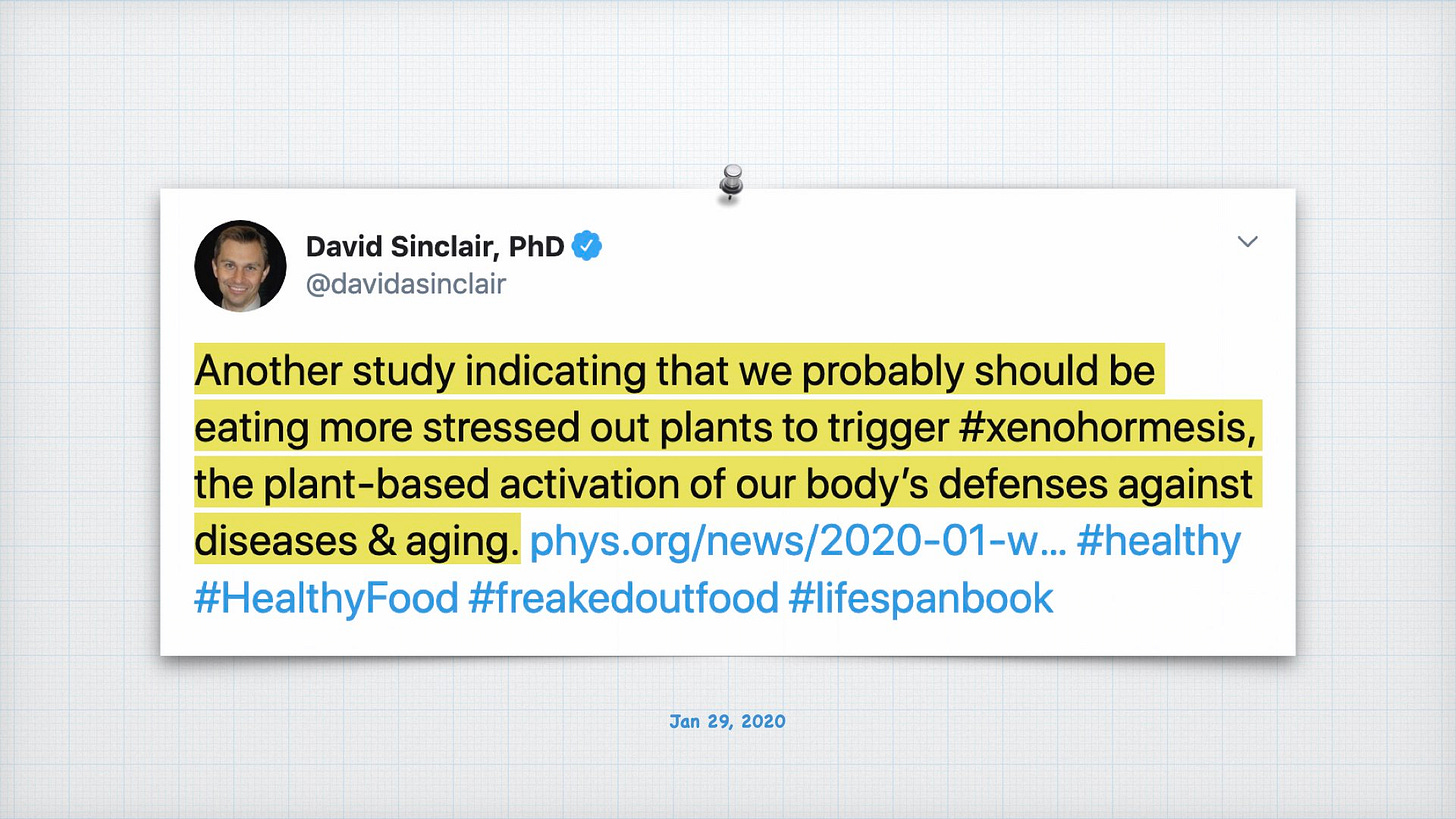
Is there a diet that can reverse heart disease?
Well, this doctor has said there's only one — a whole-food, plant-based diet:
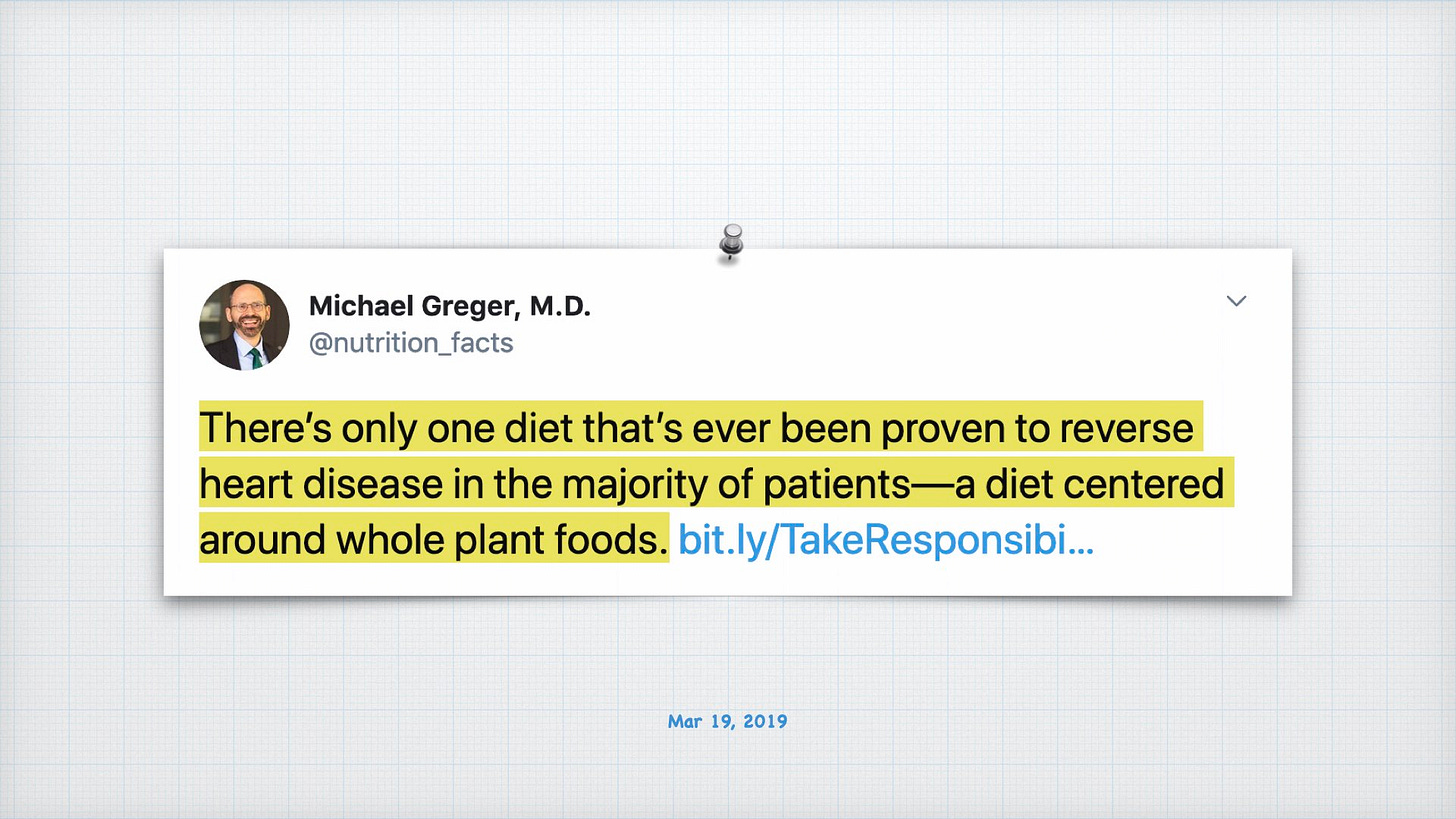
And this MD has suggested heart disease can be reversed on a "carnivore diet," meaning a diet of only animal products and no plants:
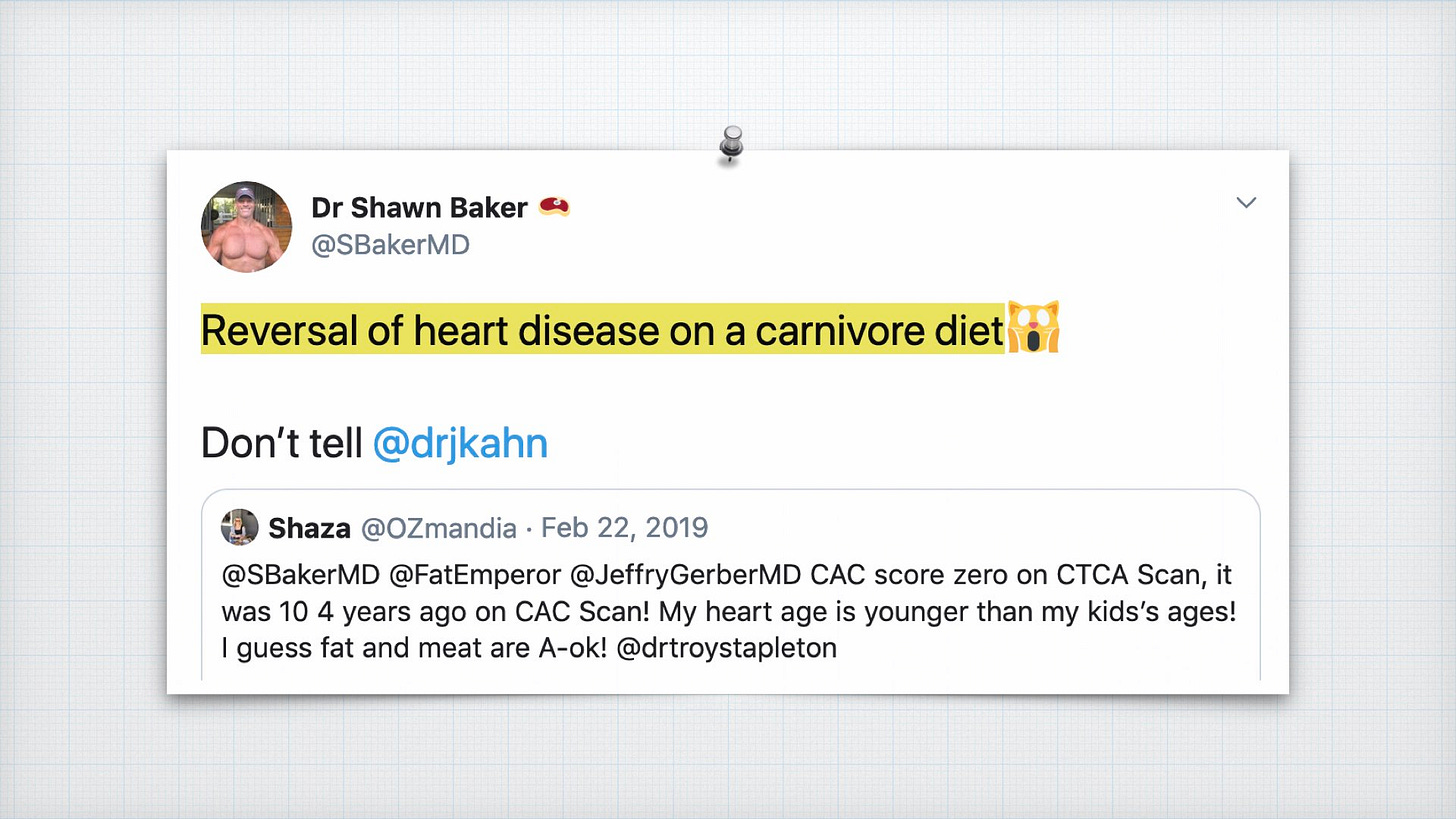
Conflicting advice like this can make a lot of us bananas. 🤪
More importantly, I think such advice is causing enormous damage — I suspect enough to justify considering it the top threat to our health.
How's it damaging?
Because what we choose to believe affects what we put in our mouths.
And what we put in our mouths arguably is the top thing affecting our health.
- It affects how fast we age biologically.
- It affects if and when we might get cardiovascular disease or cancer.
- And affect many other things – like the health of individual organs such as kidneys. [1]
I think we can beat this threat.
There's no sure way, but here's how I try.
Despite all the conflicting advice, I still make deliberate choices.
But not because I'm sure I know what's best to do.
After listening to what various "experts" and others say, I do what makes sense, what feels right — intuitively. That's it.
Does this strategy sound too simplistic?
Where some magic is needed. 👈
The strategy I'm suggesting is simple. But there are three things I also must do to give this basic approach a chance to be effective.
- I must try to identify health experts who appear to have integrity and ideally keep up with reading and learning from scientific research.
- I must remain open to the possibility I'm making mistakes.
- I must always be willing to make "course corrections."
None of these things are easy for us humans. There's no calculator we can run, for example, to identify when we have made a poor health choice.
But I'm determined. 💪
If I find something suggesting I should change what I do for my health, I'll make the change as soon as I decide it makes sense and feels right.
My message to you.
I don't think you should let the confusing state of health information and advice stop you from trying to be as healthy as possible.
You can still go forward — and make the decisions based partly on what feels right.
Before making any decisions, I suggest you review information supporting and opposing what you're inclined to do.
You could consult with your doctor and a dietician.
After making any decisions, I suggest you keep reviewing health and nutrition information, ideally from different sources. And that you remain open to the possibility you might need to make more changes.
Change again, maybe a little or a lot, when it feels right.
Here's a simple way of saying the same thing:
Do the best you can until you know better. Then when you know better, do better. — Maya Angelou
- The Effect of Animal Protein on the Kidneys. NutritionFacts.org. February 8, 2018.
